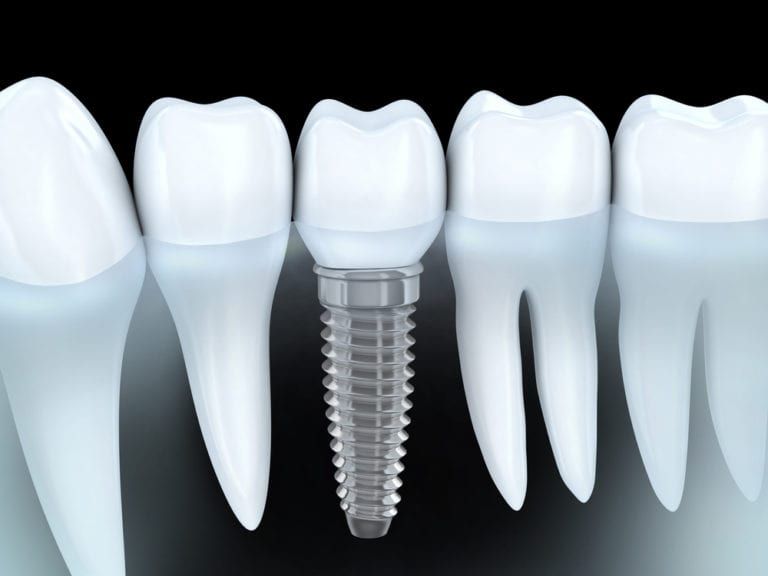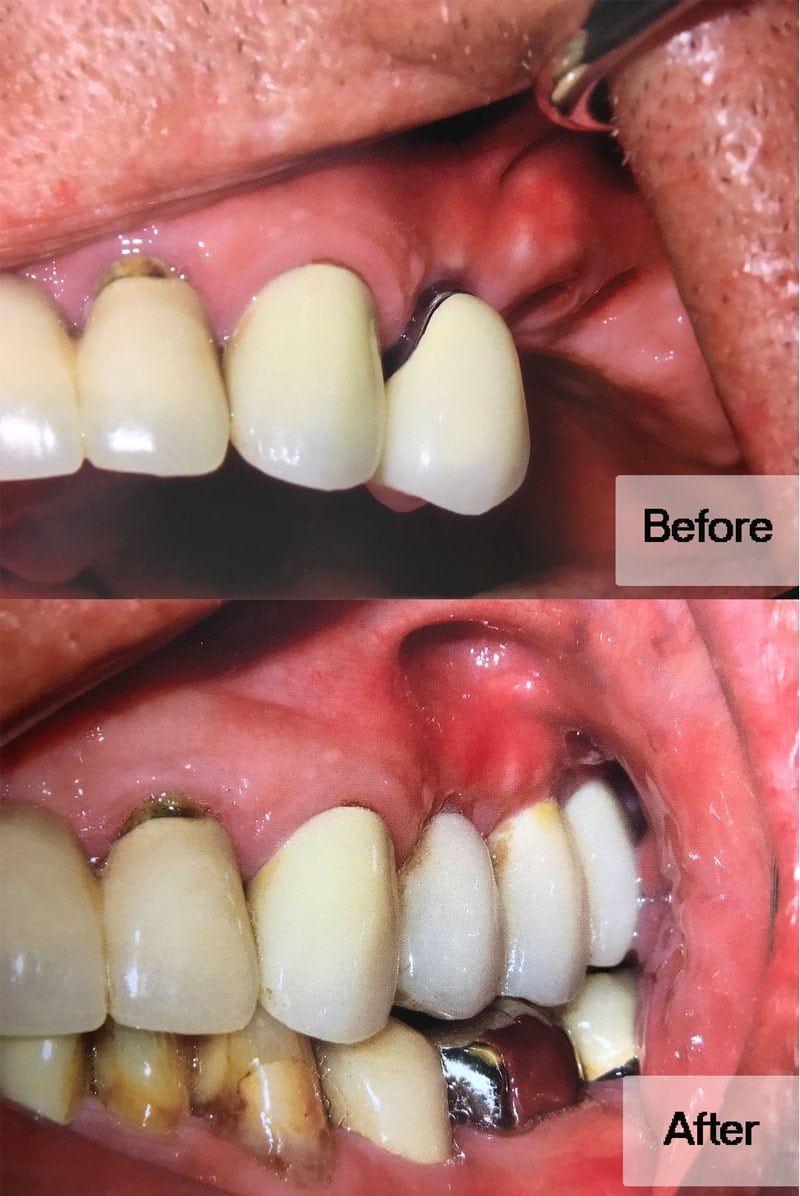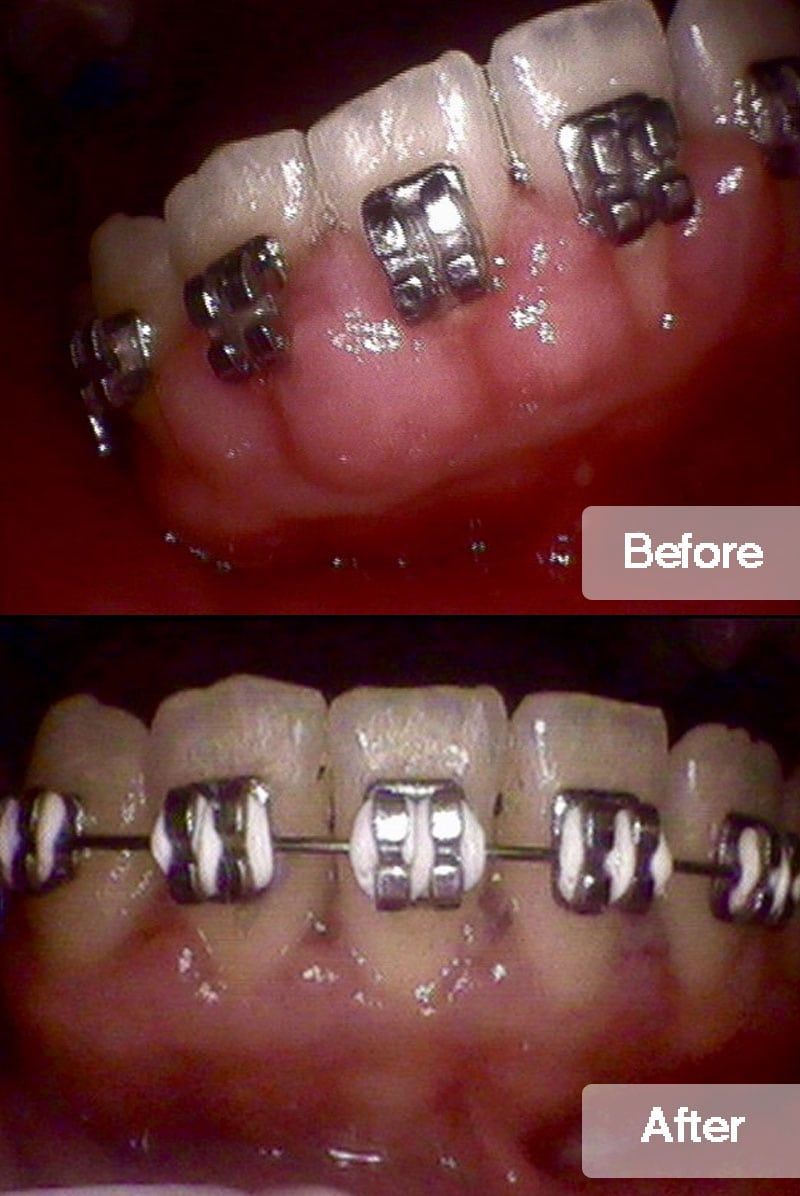Implants & Laser

Dental Implants
Dental implants are surgical-grade root devices that support
Dental implants are surgical-grade root devices that support permanent tooth prosthetics that potentially last a lifetime. The implants are anchored in the bone beneath the gums where they become fused into the jaw. A crown is mounted atop the implant for a long-lasting and natural smile. Dental implants offer the same function as natural teeth and also help prevent bone atrophy in the jaw. They may be used to replace a single missing or damaged tooth or to restore an entire smile.

Frequently Asked Questions
Are dental implants right for me?
You may qualify for dental implants if you have missing, broken or severely decayed teeth and are in relatively good overall health. The only way of determining your eligibility for implants is to consult with an oral care provider to identify whether you have adequate bone support and healthy gums that will support the new tooth structure.
What should I expect if my dentist and I decide dental implants are right for me?
The placement of dental implants is a multi-step process that typically takes between 6 and 9 months to complete. It begins with a surgical procedure during which a titanium rod is placed where a previous natural tooth root once was. The gums are sutured shut over the implant, where is will stay for several months while it heals and begins fusing with the surrounding bone. Due to the nature of implant placement and its average procedure time of between 1 and 2 hours, you’ll be sedated and/or anesthetized for the duration of the treatment. At the conclusion of the healing period, you’ll return to be fitted for permanent crowns and have them placed.
What type of post-treatment care will I require?
It is normal to experience some discomfort, including bruising and swelling following a dental implant procedure. However, inflammation and pain may be managed with over-the-counter medications, hydrocodone, or codeine. You may be asked to eat only soft foods for approximately 2 weeks until the surgical site heals.
Laser Dentistry
Laser Dentistry has many applications
Laser Dentistry has many applications such as
Crown Lengthening: Dental lasers can reshape gum tissue (soft tissue laser) and bone (hard tissue laser) to expose healthier tooth structure. Referred to as crown lengthening, such reshaping provides a stronger foundation for the placement of restorations.
Gummy Smile: Dental lasers can reshape gum tissue to expose healthy tooth structure and improve the appearance of a gummy smile.
Muscle Attachment (Frenula): A laser frenectomy is an ideal treatment option for children who are tongue tied (restricted or tight frenulum) and babies unable to breast feed adequately due to limited tongue movement. A laser frenectomy may also help to eliminate speech impediments.

A better alternative
Laser technology demonstrates positive effects on decreasing bacteria, assisting in tissue reattachment, and biostimulation for better healing. A no cut, no suture alternative to traditional surgery that minimizes bleeding and inflammation.
It will also provide for faster healing with little to no resulting gum recession
Laser dentistry preserves more of your healthy gum tissue.
Are You a Good Candidate for Laser Dentistry Treatment?
Almost anyone who suffers from gum disease is a good candidate for this laser dentistry treatment. If you suffer from bleeding or swollen gums, bad breath, receding gums, or loose teeth, laser dentistry may be the right treatment for you. We can evaluate your oral health and discuss whether laser is your best available option.
